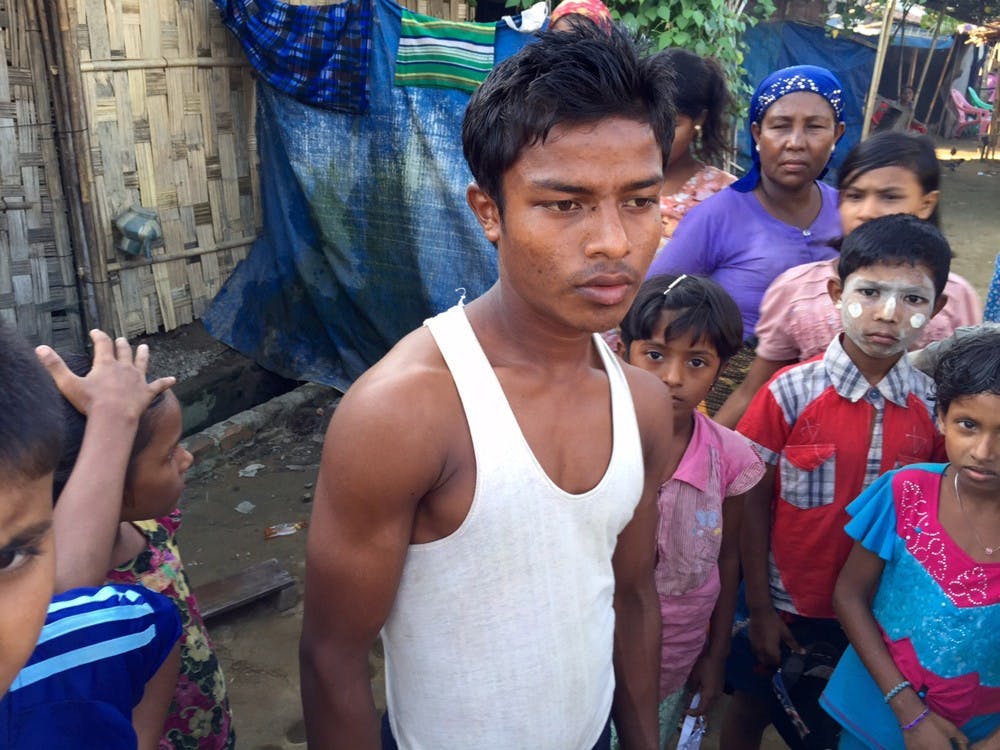Most Americans likely couldn’t tell you where Myanmar is on a map. To some, their only information on the country might be from a Top Gear special.
Nonetheless, the current situation there now is extremely tenuous. The Rohingya, a Muslim minority group on the border with Bangladesh, has come under attack by the nation’s military. In a situation described by the United Nations as “textbook ethnic cleansing,” thousands have been killed and hundreds of thousands have fled to escape the violence. The U.S. has offered little besides quiet condemnation, careful, it seems, to avoid larger action against a potential regional partner. This needs to change. Words, powerful as they may be, can do nothing to stop the impending maelstrom.
The Rohingya have lived in Myanmar, formally known as Burma, since at least the 12th century. Considered by some to be "the world's most persecuted minority,” the Rohingya “live in the western coastal state of Rakhine and are not allowed to leave without government permission.” They have been denied citizenship in the primarily Buddhist nation, rendering them politically and economically marginalized. Violent actions against them are commonplace, particularly at the hands of the Myanmar Army and various extremist Buddhist groups.
The current spike in violence began in full after an attack by militants against government installations in Rakhine, resulting in the deaths of 12 security personnel and 59 Rohingya. The “Arakan Rohingya Salvation Army ... took responsibility for the overnight attacks ... saying they were in defense of Rohingya communities that had been brutalized by government forces.” To that end, they have something of a point. Violence has never really subsided against the Rohingya, there have just been peaks and troughs of acute violence. It is understandable that a marginalized people under attack and without government protection would respond in kind. However, instead of seeking a policy of detente with the militants who are simply seeking representation and protection, the military has responded with unrelenting violence against civilians.
The government response was immediate and brutal. On Aug. 28, three days after the militant attacks, satellite imaging picked up something ominous. Numerous fires were noticed in multiple villages in the Rakhine. As the smoke cleared, further imaging indicated the sheer scale of the horror, “in one village, Chein Kar Li, which is a Rohingya village, we saw 99 percent of the town destroyed. That's 700 buildings. In another part, in Maungdaw Township, in northern Rakhine State, we saw 450 buildings destroyed.” On the ground, coverage has proved difficult due to government restrictions, but reports have indicated the extensive “burning of villages and extrajudicial killings.” The death toll is currently unknown, but hundreds of thousands have attempted to flee into nearby Bangladesh, braving the dangers of indiscriminate military violence and land mines placed on the border by the Myanmar military.
Clearly, the violence in Myanmar is an extraordinarily blatant example of government-backed ethnic cleansing. Yet, even with the evidence as clear as day, the U.S. has done little in response. The White House has released a statement condemning the violence and the lack of government protection for the Rohingya; however, this simple and expected action has no bearing on the escalating violence. Why has the government not done more?
Perhaps it has to do with U.S. interest in the country and region as a whole. Under former presidents, the U.S. attempted to bring about democracy in Myanmar by leveling sanctions against the nation’s repressive government. Under Obama, sanctions were lifted as the first elections in “more than 50 years” were held in the fledgling democracy. This relief from sanctions was, in part, a reward for reform, but also as an attempt to stave off Chinese influence in the strategically important region. China has showed extensive interest in Myanmar, helping to mediate a different civil war within the country and investing significant amounts of capital in the nation. In recent days, China has backed Myanmar’s attempts to maintain “stability” in the region and could limit the ability of the UN Security Council to intervene via its veto. The fine line of “not wanting to undermine the Asian country’s democratic leader” and fighting off Chinese attempts to sway the nation have left the U.S. in a bad position to respond to the crisis.
My suggestion is to abandon Myanmar as a regional partner. Chinese influence is already overwhelming in the nation and the U.S. is just fighting a losing battle. Furthermore, the U.S. should not support a nation actively engaging in ethnic cleansing against its own people. Instead, we should reinstate the sanctions lifted under Obama, level new sanctions against the government and its leaders and cut all trade ties with the nation. The U.S. currently does hundreds of millions of dollars of trade with Myanmar, that should cease. Military action is decidedly off the table, but everything up to it should be used to halt these atrocities.
In the face of such evil, words alone are not enough. While we may not be able to strike at them directly, the situation demands an urgent response, even an economic one. We cannot let Myanmar become another Darfur, another Bosnia, another Rwanda. We have failed too many times, we should not let it happen again.

